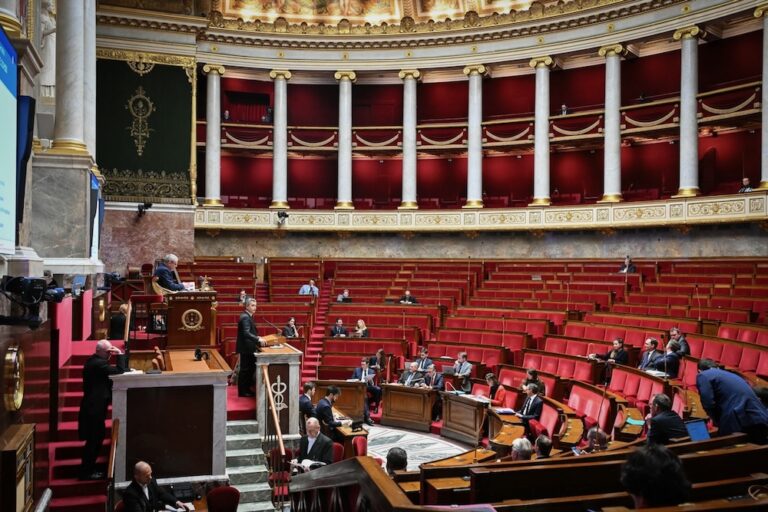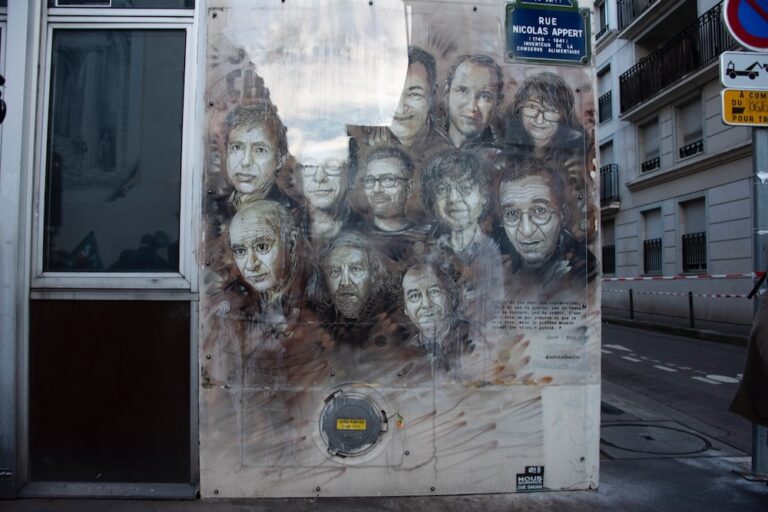RSF is concerned that accelerated procedures will deny legislators the time to properly debate a bill that threatens the right to Internet access.
UPDATE: Repealing French three strikes law is next step to safeguarding free expression (EFF, 8 August 2012)
(RSF/IFEX) – The repressive mentality that imbues France’s anti-piracy bill, even its new version, could jeopardise access to information when alternative ways exist to protect literary and artistic creation, says Reporters Without Borders. The bill is being rushed thought parliament with the support of President Sarkozy, who has said he wants to “go all the way” with it.
The new version, dubbed “HADOPI 2” after the acronym of the special agency it would create, the High Authority for the Dissemination of Creative Works and Protection of Rights on the Internet (HADOPI), was passed by the National Assembly on 15 September 2009 after the original version, “HADOPI 1,” was thrown out by the Constitutional Council in June.
The Constitutional Council rejected the original version as unconstitutional on the grounds that it would have enabled the authorities to disconnect the Internet access of illegal downloaders without referring to a judge. The new version is meant to satisfy that requirement. A similar version of HADOPI 2 was approved by the Senate in July.
“HADOPI 2 is supposed to give Internet users guarantees but it is just a spruced up version of the bill that was rejected by the Constitutional Council,” Reporters Without Borders said. “A new version submitted just days after the original’s rejection, emergency debates, accelerated procedures – everything is being done to deny legislators the time to properly debate a bill that threatens the right to Internet access, a right recognised as fundamental by the European Parliament.”
The press freedom organisation added: “It is this right that is at stake in the choice of the technological methods used to trace the illegal downloading and identify the person responsible, in the punishment adopted, and in the procedure used for imposing the punishment.”
The bill does not specify the mechanism to be used to search for illegal downloads. If it is an algorithm, there is every reason to fear it will be poor at distinguishing legal from illegal online activity. A detailed but innocent email exchange with a friend about a movie, for example, could be picked up by the algorithm. Similarly, how do you prove the innocence of someone whose IP address is hijacked for the purposes of illegal downloading, and no trace is left?
Legislators are supposed to be responsible for protecting basic freedoms. The bill should stipulate the methods used to monitor the Internet so that their scope and their impact on free expression can be evaluated.
The legal procedure chosen for applying the sanctions is also a source of concern. Of all the penal procedures available, the simplest and quickest has been chosen, one in which a single judge issues a court order without the accused being present.
Reporters Without Borders is also alarmed that the alleged offender will not be given details of the illegal download when the disconnection order is issued. This recalls the censorship methods in force prior to the 1881 press freedom law, when the censor did not have to tell offenders why they were being censored.
Read the full article: http://www.rsf.org/Government-pushes-through-spruced.html


